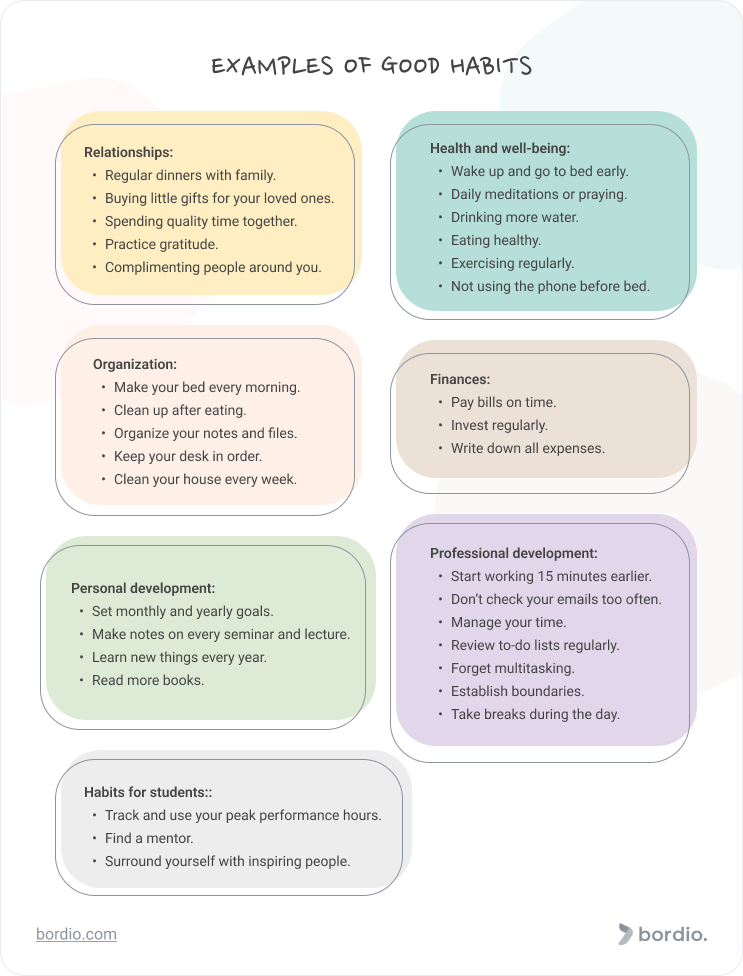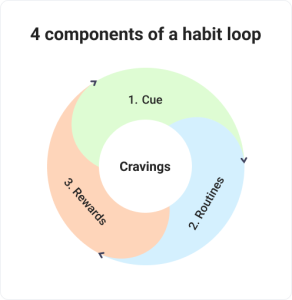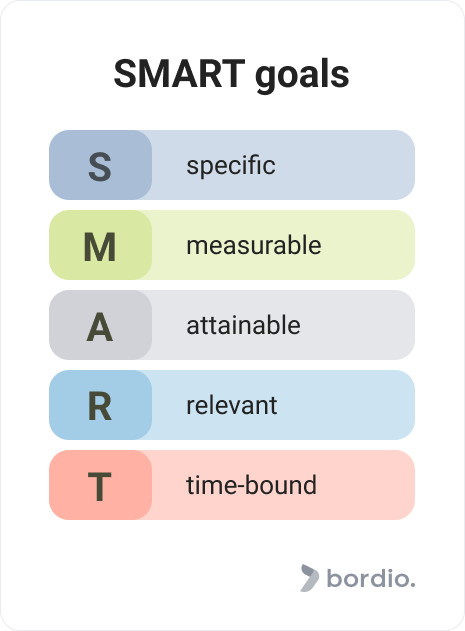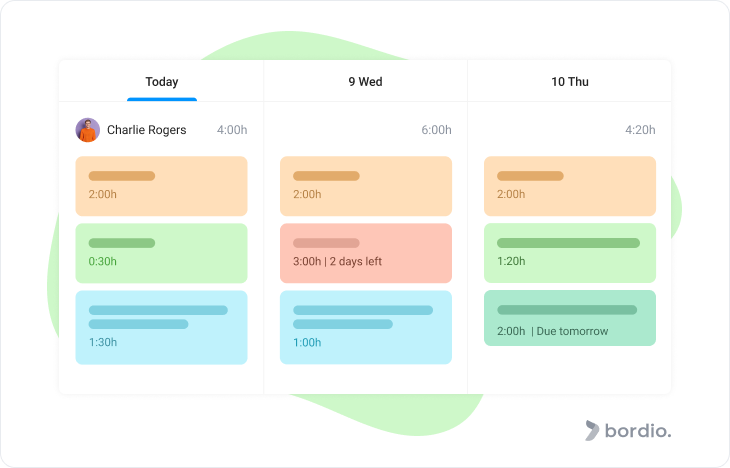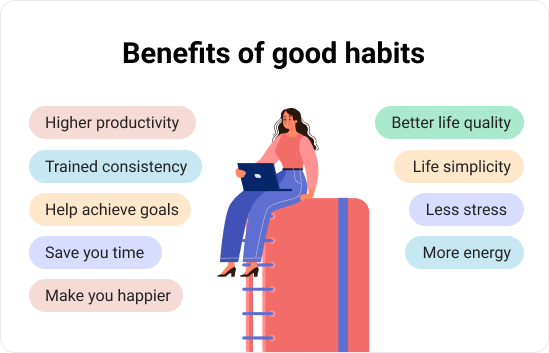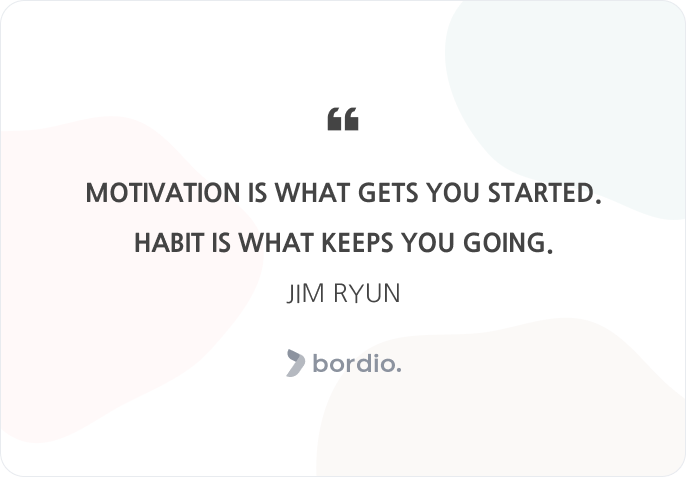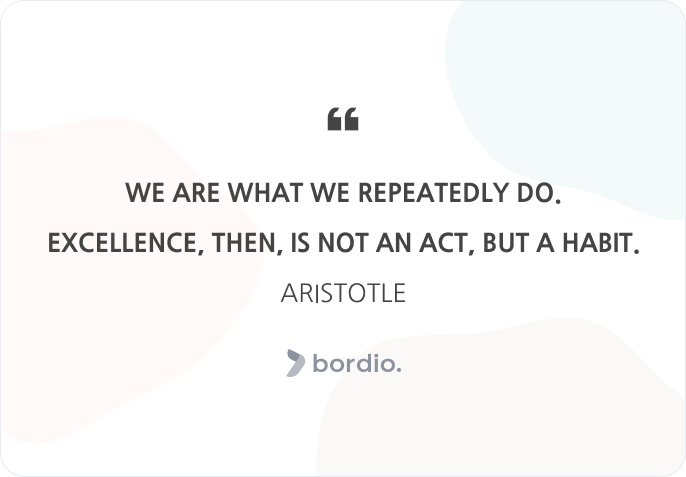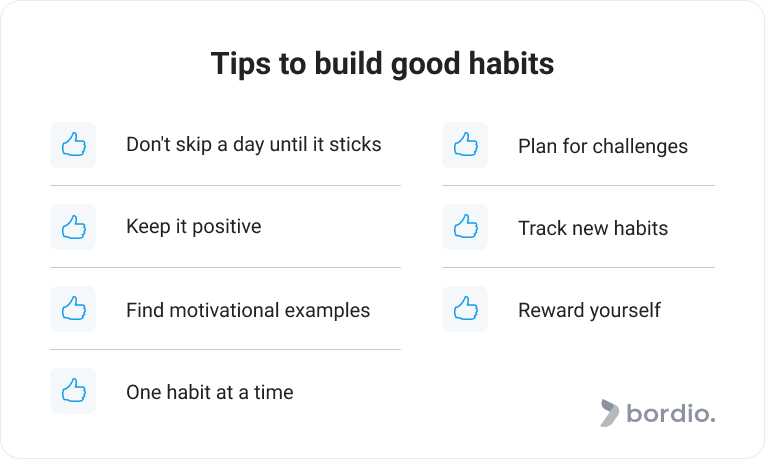Forming good habits is something we all think about every once in a while. We know that good habits can transform our lives, help us get out of a rut, and make us more successful. To make it easier to form a habit you can use a task progress tracker and track the regularity of things to do online.
But what if you are motivated to change your daily routine but have no idea where to start? Worry not! We have prepared lots of examples of good habits that you can focus on.
What is a habit?
Habits are actions and activities that we do regularly, and that are a part of our daily lives.
Drinking coffee in the morning, for example, is an example of a habit. So is going for a walk every evening with your significant other.
A distinctive feature of habits is that they don’t require much effort on your end. In fact, you almost go into autopilot as you’re doing them. You don’t have to think about whether you will be doing it or not, you simply do. Surely, you don’t agonize over brushing your teeth before you go to bed, right?
According to James Clear, the author of “Atomic Habits” best seller, habits have a psychological pattern that is called a habit loop.
The pattern is created out of four key components:
Cue – a prediction of the reward that triggers us to adopt a new behavior.
Craving – a motivational force behind a habit that forces us to act a certain way.
Response – an action that we take fuelled by craving and caused by the cue.
Reward – getting the reward strengthens the association between the cue and this last step, completing the habit loop.
Good and bad habits
There are good habits that make us better human beings, and there are bad habits that cause harm. To get rid of a bad habit you can also replace it with another useful activity using online time planner.
The issue with bad habits is that the harm they cause is often subtle and we can only see its consequences in the long run. For example, if you eat in bed and hardly exercise, you’ll be fine in a few weeks and months. Over the years, however, you might start seeing your health and endurance worsen, gain extra weight, and even have issues with mental health.
There is not a single person on planet Earth that has zero bad habits. And that’s fine, we don’t have to strive for unattainable perfection.
Instead, we can work on slowly cutting the bad habits out of our life while balancing them out with good habits. Consuming too much candy can be bad for you, but if you go to the gym every week and eat lots of veggies as well, then it’s not as bad in the end. Don’t get us wrong, cutting down on sugar is something you should be doing, but you get what we mean, right?
There are tons of good habits across all areas of life that you can start working on today. Our curated list of healthy habits will get you inspired (we hope) and give you an idea of where you can start.
We’ve divided our suggested habits into categories so you can browse through them conveniently.
Examples of good habits in relationships
What are we without people around us? The question is philosophical, of course, but relationships do play an important role in our lives, so if you plan to develop good habits, starting with your relationships would be a good idea.
Here is what you can do.
Family dinners once a month
Invite your family or parents for a dinner once a month. A real dinner, whether at home or at a restaurant, where you get to sit, enjoy the food, and converse for hours. To make it even better, have a no-phone rule for such meet-ups.
Call your loved ones if you come home late
If you sometimes come late from work, start calling your significant other and let them know about it, instead of keeping them waiting and worrying.
Gifts for loved ones
Start buying little gifts for the people you love every couple of weeks. It can be flowers, chocolates, books, knick-knacks, or anything else that you feel appropriate.
Spend time together every week and choose to do something different every time
For example, this week it’s cooking together, next week it’s going to a museum and a bar afterward. Relationships require work, and we have to be intentional to keep them strong and healthy. Scheduling quality time together into your weekly planner will definitely help achieve that. Bordio’s online weekly schedule planner is one that we recommend.
Practice gratitude and express it daily
Acknowledge the good things in your life. Say thank you to people you interact with. Whenever you talk to someone, and especially if they are doing something for you, such as making your coffee or servicing you at a cashier, make it a habit to thank them. And if you are up for it, get yourself a gratitude journal to write down the things you are helpful for. It might sound silly, but it will help you maintain a positive attitude towards life and, hence, make you more stress-resistant.
Compliment those around you
Make a conscious effort to compliment people around you and acknowledge their success. You will make other people’s lives better with your kind words, but you will also boost happiness for yourself too. There are so many amazing people around us doing great things without much recognition from anyone around them. Pointing those successes out will shift your perspective to positive thinking and will bring you mental peace.
Call your family once a week
Even when you don’t want to. Even when you’d rather be doing something else. Everyone’s family situation is different, so you might be more reluctant to make those calls. We still recommend you try and have proper conversations, even short ones, where you talk about meaningful things and really listen to each other.
Examples of good habits in health and well-being
There are so many healthy habits you could be working on to make your life better! Opportunities are endless really. We’ve curated a list of habits for good health that everyone can (and should) implement.
Wake up early
And try waking up at the same time every day. Starting your day earlier has many benefits. Most people are productive in the first half of the day, so you have a better chance of accomplishing your goals that way. Plus, waking up early (ideally) means going to bed early too, and that’s good for your body that gets to recharge properly. If you struggle with this habit, try scheduling fun and pleasant things in your digital day planner first thing in the morning. These little indulgences will inspire you to wake up easily and start your day with task tracking in free daily schedule planner.
Meditate or pray
Start taking some time for yourself with daily meditations or praying. Think of it as a self-care ritual where you get grounded and focus on the important things. Make it a 5-minute thing if your schedule is absolutely packed most days, but prioritize it over social media scrolling or toxic conversations and gossiping.
Drink more water
Water is good for our bodies in general. The bonus side effect is that you might end up consuming fewer snacks and sugary drinks. We sometimes mistake hunger for thirst, and drinking plenty of water helps avoid that.
Brush your teeth and do it well!
So many of us don’t follow the doctors’ recommendations and brush our teeth either too quickly or with the wrong technique. Teeth are very important for our health and confidence, and fixing them can get really painful and expensive. The best is to make sure they are healthy at all times so that you won’t have to worry about them.
Make eating healthy a priority
Healthy eating is so important to us, it is unbelievable. Healthy foods have all the nutrients that make us feel good both physically and mentally. Those who eat healthy most of the time have more energy and are less prone to getting sick with diseases than those who frequent fast food restaurants suffer from. Start your day with a healthy breakfast that will give you energy and strength. Don’t think about healthy eating as a way to lose weight, but consider it a stepping stone to living a long, fulfilling, and meaningful life. There are so many things each of us wants to do, don’t let the bad habit of eating poorly rob you of that.
Start exercising and make it a part of your lifestyle
There is no need to train for Ironman and exhaust yourself. Rather implement a daily exercise routine in a form of a quick and easy warm-up of 15 to 30 minutes to stretch your muscles. Even the short daily motion will do wonders for your health. To get started, study your online calendar planner to identify the time when you are least likely to be interrupted. Then schedule quick workouts in virtual planner free and in that time period to ensure it’s not booked for anything else.
Don’t use your phone before going to bed
Try to put it away at least an hour before you go to sleep. Scrolling Facebook, chatting with someone, and even simply being exposed to the screen light all prevent you from relaxing and falling asleep easily.
Go to bed earlier
And aim for at least eight hours of sleep per night. Sleeping at 10 or 11 pm is ideal, so strive to do that and adapt your lifestyle slowly. Going to bed early is honestly one of the best daily habits you can implement. Getting enough sleep will help you lead a healthy and productive life. It will also make developing good habits easier because you’ll have energy for them.
Examples of good habits in organization
Many life coaches out there talk about organizational habits and how they have the potential to transform your life. There is definitely truth to that!
As James Clear said – “You do not rise to the level of your goals. You fall to the level of your systems.”
Part of building a system is organizing your life. Here is what we can recommend.
Make your bed every morning
Now, there are two teams out there – one that swears by making their beds in the morning, and the other that says it doesn’t do anything. We see making the bed as something symbolic, something that transitions you from a half-awoken state to an active day. It creates a sort of mental border that signals you that it’s time to grind.
Organize your notes, photos, and files into categories
Digital clutter and digital waste are becoming a big problem for many people. By now, we are all used to the concepts of decluttering and being minimalists in the physical space, but we often ignore the problem in our digital assets. Go through all your photos and files, organize them, delete what you don’t need, and create backup copies of the important stuff. In addition, family photos retouching – it is also a good habit in a timely manner. Also go though your online to-do list and close off all tasks in free time organizer that are either irrelevant or you know you won’t find time for them.
Clean up right after you’ve finished eating
Wash dishes or put them in the washing machine. Put the remainder of the food in the fridge. Spend a couple of minutes cleaning up the kitchen counter. Next time you’ll need to use the kitchen, you will feel ten times better stepping into a space that is clean and fresh.
Clean your desk after work
Go through the papers and see what should be put or thrown away. Wash cups and glasses. Put away any snack leftovers and other random things that have accumulated on the table during the day. Next morning, when you come back, you will not be distracted by the clutter and will be able to get straight to work.
Clean your house at least once a week
Clean once a week or hire cleaners to help you. Our homes play a huge role in how we feel and, subsequently, how we live our lives. That’s where we are spending time outside of work, and it should be a comforting space. Also, if you start cleaning your house weekly, you will be able to avoid the major deep cleaning that can take up to a few days if you live in a big house.
Examples of good habits in finances
Changing your financial behavior is extremely difficult because it requires a lot of self-discipline and often involves short-term sacrifices. However, taking care of your financial situation is a must for a happier life.
Pay bills on time
If you struggle with finding the money to pay your monthly bills, make it a rule to allocate part of your paycheck for that as soon as you get it. Set monthly reminders in the Bordio best task maker, so you don’t forget to make the payments. Alternatively, set up automated payments with your bank if that’s possible.
Invest regularly
Yes, even in 2023. Some might say that now is not the best time but the history of economics and finances tells us that crises are just as good a time to invest as any other period of life. In fact, during turbulent times you have a chance to buy stocks at a relatively cheap rate. Just make sure you don’t invest the money that should go towards paying rent and buying groceries.
Strive for financial independence
Create a plan and work towards it by saving, investing, purchasing consciously, and increasing your income. Ask for a raise and consider alternative income streams that you can combine with your current employment. We don’t support the hustle culture, but you can find side-gigs that are sustainable, meaning they don’t take too much of your time yet allow you to earn a bit more every month.
Control your spending
Write down all your expenses, categorize them, and review them at least once a month. Assuming how much money goes where is one thing. Seeing it with your own eyes makes a lot of difference and helps you be more conscious of your spending.
Examples of good habits in personal development
Personal life improvement and development is another aspect of life that we in Bordio love tapping into. We’ve already done a series of articles that help you become a better version of yourself, such as time management tips, productivity at home, how successful people start their day, and many more.
Today, we want to share positive habits that you can start working on today for a better tomorrow.
Set monthly and yearly goals
Yes, it is also a habit to set goals and follow them through. Dedicate time at the end of each month and once a year to write down your goals, plans, and new habits that you want to integrate. Also, brake your goals down into smaller tasks. That way you won’t feel overwhelmed and ditch them. Remember – if you only go with the flow, you’ll have no control of where you end up. Try the SMART goals technique to avoid common goal-setting mistakes.
Note quotes and ideas
Highlight quotes and statements that resonate with you when reading a book or an article. Come back to those quotes regularly for a motivation boost.
Make notes
Make notes whenever you are attending a seminar, a lecture, or a coaching session. We often get inspired at the moment but struggle to maintain our motivation later on. Reviewing the materials will certainly help remember what you’ve learned before, and also use that knowledge in the present moment.
Learn something new every year
It can be a new language, coding basics, cooking, art history, or anything else that you are curious about. Learning new things helps us stay up-to-date with the world, broaden our horizons, and feel more confident in the ever-changing environment that we live in. By the way, we did a guide on how to learn faster, so make sure you check it out and optimize your learning process.
Read more
Get into the reading habit and aim to read at least 2 books every month. Some people read in the morning before work, and others read in the evening before going to bed. Another option is to read during the launch break or during your commute if it takes 30+ minutes.
Tip: Have a browse through our book lists for inspiration. We’ve created a list of best time management books, productivity books, and project management books.
Listen to audiobooks or podcasts whenever you go somewhere. Not only will it make your commute more fun, but it will also help you learn something interesting.
Examples of good habits in professional development
Professional life is very important, and you can develop good habits there regardless of what your occupation is.
Come to work earlier
Come to the office or start working at least 15 minutes earlier than your workday officially starts. This extra bit of time will give you the opportunity to have some quiet time before everyone else logs in, and you can use it to re-group, have a quick look at your to-do list, and stay ahead of the game.
Don’t keep your mailbox tab open during the day
It’s enough to check emails two or three times unless you work in customer service. Also, avoid starting your work day with emails. It might seem productive, but in reality, we’re procrastinating by clicking through and deleting spam and then dedicating too much time to answering low-priority emails. As a result, most productive morning hours are spent on a non-value generating activity, leaving us stuck with critical and creative tasks in the second half of the day when we’re already tired.
If possible don’t check your email at the beginning of your workday. Try to complete some important tasks first before checking your email for the first time. To maximize time-saving and productivity, crafting a well-structured cold email that is concise and to the point can significantly reduce the time spent on email communication. When considering productivity hacks, one might ask, Do cold emails work? It’s a question that often leads to mixed results, depending on the context and strategy employed.
Manage your time with Bordio
Plan activities for the next day and week, write them down in the free electronic planner, and create tasks and events in the calendar to not miss a deadline.
Review your to-dos regularly during a workday
Your priorities will change and shift during the week and during the day too, so it’s important to stay on top of tasks and change your plans if circumstances change too. By the way, our task prioritization guide will help you focus on top priority tasks and find the time for everything.
No multitasking
Focus on one thing at a time and avoid multitasking at all costs. Arrange tasks in time management software wisely. Close all tabs that are irrelevant to the current task in your browser to avoid temptation.
Take breaks
Take breaks during the workday, and use these breaks to refresh your mind by walking a bit, going for lunch, or power napping.
Set boundaries
Establish boundaries in terms of working hours and tasks you take on. If you see that you won’t be able to do yet another task today, say so.
Seek feedback
Ask for feedback on your performance, work, projects, or startups. Seek both insiders’ and outsiders’ perspectives and opinions that can help you grow as a professional.
Take notes on meetings
Whenever you have a meeting, take a pen and a piece of paper, and take notes. After the meeting is over, write down its’ results and conclusions, such as what decisions have been made, what tasks have been assigned to whom, etc. If there is no dedicated colleague taking meeting minutes, share your notes with the team using team productivity software.
Use DND mode on the phone
Turn on the do not disturb mode on your phone when working. In this case, all messages and phone calls you receive will not disturb you, and you can respond to them later during the break.
Delete distracting apps
Remove Facebook, Instagram, and Twitter from your mobile phone. Yeah, it might sound radical, but believe us – if you do that you will not get distracted by scrolling through the news feed whenever you experience stress while doing important work. This is not about the good habit. This is about canceling out the bad habit.
Examples of good habits for students
We couldn’t leave students just hanging there. So, below is a list of good habit ideas that all students can benefit from.
Make daily and weekly to-dos to stay on track
College can be overwhelming and you might easily forget about some commitments if you don’t keep track of them.
Update your calendar with key events and deadlines
Use the digital Bordio calendar or download our monthly printable calendars and get to it. Also, use reminders and set them up well in advance to allow you time to prepare for the upcoming commitment.
Use time blocking
Block time slots in your calendar to work on tasks (use Bordio’s time block feature for it). With time blocks, you are guaranteed to have enough time and resources to complete the task.
Find out your peak productivity hours
Find your peak performance hours and use them for the most difficult assignments.
Find a mentor
Many universities have a mentoring program with students and professors, but you can also find one outside of your education. Look for someone who works in the field that you’re interested in or someone who shares your values.
Be inspired by your surrounding
Surround yourself with inspiring and determined people who will push you to be your best.
What are the benefits of a good habit?
Building habits is not always easy, so one might wonder – is it worth the trouble?
At Bordio, we too sometimes struggle with keeping up with good habits and not indulging in bad ones. One of the things that keep us on track is looking back at all the perks and benefits that good habits have to offer.
So, here is what a bundle of good habits can do for you:
- Upgrade your quality of life
- Make your life simpler
- Reduce stress levels
- Make you more energized
- Improve your productivity
- Make you more consistent
- Help achieve your goals and objectives
- Make you achieve more in less time
- Make you happier and fulfilled
Habits like exercising and eating proper meals are considered time wastes by some. People think that such activities require time and effort that they don’t have. In reality, it couldn’t be further from the truth though.
Exercises, for example, boost the immune system, help combat stress and release endorphins in the body. As a result, you may be spending several extra hours a week exercising but you are getting much more in return.
And it’s the same with eating well. Have you noticed that when you are constantly consuming junk food, you are sleepy, tired, moody, and lazy? That’s not a coincidence! What we eat, we become. By providing your body with the vitamins, nutrients, and antioxidants that it needs, you literally make yourself more energized, healthy, creative, and happy.
With less stress and anxiety in your day-to-day, you will get sick less often and have better chances of living a good long life.
Motivational quotes on good habits
We all need that little nudge of motivation sometimes, and a good quote can do wonders if you read it in the moment of real need.
Below are our favorite quotes about developing good habits and habits in general.
Motivation is what gets you started. Habit is what keeps you going. – Jim Ryun
Good habits are the key to all success. Bad habits are the unlocked door to failure. – Og Mandino
Good habits and intentional daily effort to turn excuses into solutions will help you become the person and entrepreneur that you want to be. – Farshad Asl
Perfection may never be attained, constant repetition of good habits are the closest thing to perfection. – Marion Bekoe
We are what we repeatedly do. Excellence, then, is not an act, but a habit. – Aristotle
The chains of habit are too weak to be felt until they are too strong to be broken. – Samuel Johnson
We first make our habits, and then our habits make us. – John Dryden
The secret of your future is hidden in your daily routine. – Mike Murdock
Successful people are simply those with successful habits. – Brian Tracy
Success is the sum of small efforts repeated day in and day out. – Robert Collier
Successful people aren’t born that way. They become successful by establishing the habit of doing things unsuccessful people don’t like to do. – William Makepeace Thackeray
Tips for building lifelong good habits
Good habits sound amazing. And we’re sure that you’d love to incorporate a few of them into your lifestyle. But where do you start? Here are a few tips and recommendations for you to form the habits you’ve been dreaming about and set yourself up for success.
Repeat, don’t skip!
Repeat the habit until it becomes a natural part of your day. We’ve already talked about the debunked myth of 21-days to form a new habit in our how long does it take to build a habit article. Long story short, it’s not true although it works for some people, especially with easier and pleasing habits. So, don’t think that 3 weeks is enough to get used to working out or waking up early. It can take much longer. So, as you are building a habit, avoid the temptation of skipping a day or two. It can have no consequences or it can throw you back to point A.
Make it a positive experience
Don’t beat yourself up, use negative motivation or self-scrutiny. It’s not healthy and you are more likely to drop the entire thing just to avoid the negativity associated with it.
Find a motivational example to keep you inspired
Once you know what habit you’d like to form, seek out people who have already mastered that habit and get to know them or follow them online. Be careful though to not go vice versa – it’s not always good to get inspired by someone and look to replicate their routines. The habit must be yours first, and you should make a conscious decision to work on it. If your motivation is external, i.e. a celebrity said that they work out every day and now you want to be like them, you are much more likely to drop it before it sticks.
One habit at a time
It’s praiseworthy that you want to incorporate many good habits into your routine.
However, if you attempt to work on them all at the same time, you risk overwhelming yourself and failing across all boards. Instead, take it slow and you will be more likely to succeed. If you can’t wait too long, give yourself at least 2-3 weeks before you introduce a new healthy habit into your routine.
Have a plan for obstacles and challenges
Adding something new to your life is likely to cause an inconvenience of some sort. Think about possible issues in advance and have a plan. That way, you won’t be tempted to go back to your old ways to avoid trouble. The common challenges are – not enough time, bad weather, no space at home, not enough disposable income (i.e. for healthy food), not feeling good or experiencing pain. Once you have a list of your personal obstacles ready, run a what-if exercise. E.g., if I get too busy to study C++, I will start waking up 40 minutes earlier every day and studying before I do anything else.
Track your new habit
You can find a digital habit tracker or print it out and put it by your desk. Make it a ritual to cross off every day when you complete your habit-related activity.
Reward yourself but make it sustainable
Rewarding yourself is important to keep up with motivation and help you not slip. But not all rewards are equally good. Some of them are toxic and some are sustainable. For example, if you try to quit smoking and haven’t done it in a week, allowing yourself one cigarette is not a good idea. Instead, let’s say you work on your physical well-being and work out 5 days a week for a month. A good reward for you would be to treat yourself to a nice spa.

